A Bus Filled With Herbs And Botanicals Is Bringing Healing To California Farmworkers
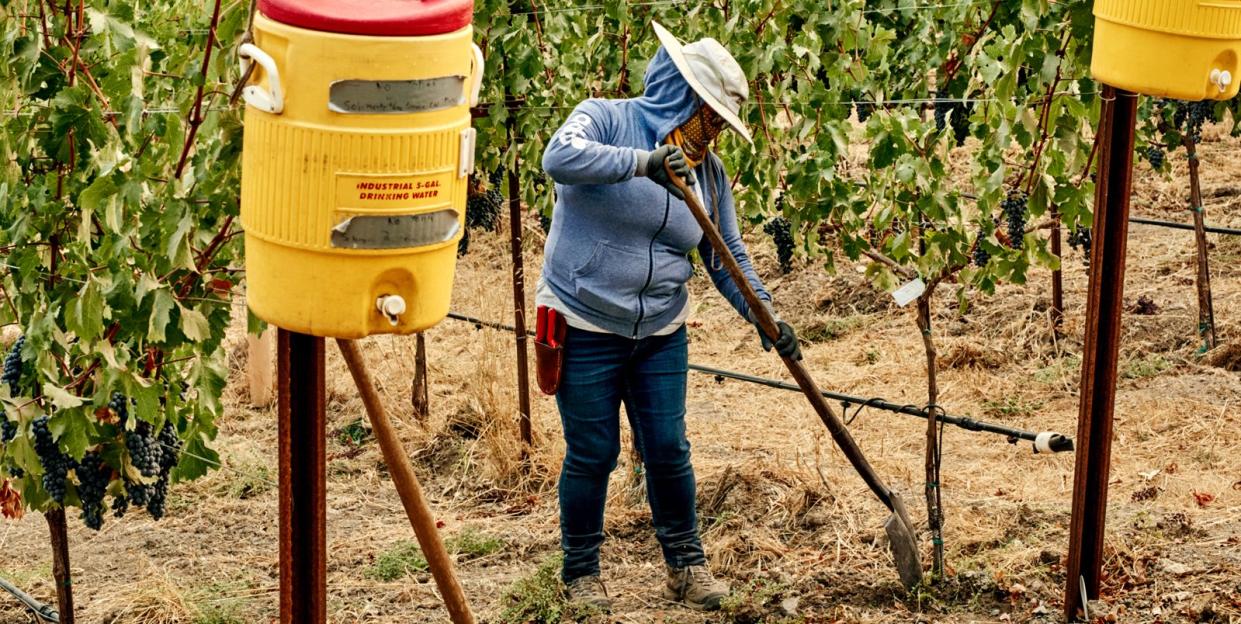
It’s 9 a.m. on a Friday in August, and a group of about 40 farmworkers have been hard at work for three hours in a Napa vineyard. The sky is hazy from a nearby wildfire, and the air quality clocks at 105— “unhealthy” for people with diabetes, heart, and lung disease. Jocelyn Boreta pulls in front of a barn at Silver Oak vineyard aboard her Botanical Bus filled with 100-plus dried herbs for formulating teas and a 70-herb tincture bar. She starts setting up for the day’s event: the largest bilingual health clinic she’s ever organized.
An hour later, her crew of about 30 masked-up practitioners—including masseuses, acupuncturists, reiki specialists, a foot nurse to help with calluses and ingrown toenails, a somatic therapist, and clinical herbalists—plus volunteers including translators, begin to arrive.
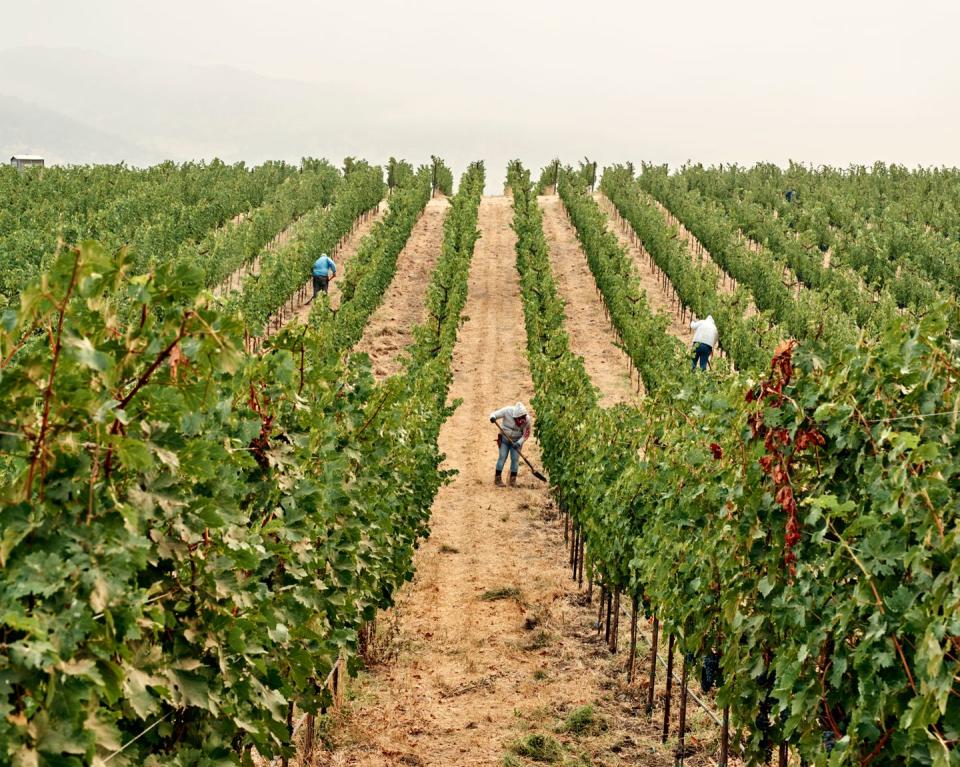
Over the course of about three hours, during a clinic sponsored by their employer, the farmworkers rotate between socially distanced care stations (massage tables, acupuncture sessions, meditation circles, sit-down chats with herbalists) as well as a diabetes workshop in the barn, and, of course, a delicious lunch of rice, beans, homemade tortilla chips, and tamales.
A descendant of a Native American and Mexican migrant farmworker (her grandmother picked fruits across the U.S. as a child), Boreta’s mission is to provide care for those whom the traditional healthcare system has failed.
“This is my heart’s work,” Boreta says. “I really feel like this is one of the most significant accomplishments of my life.”
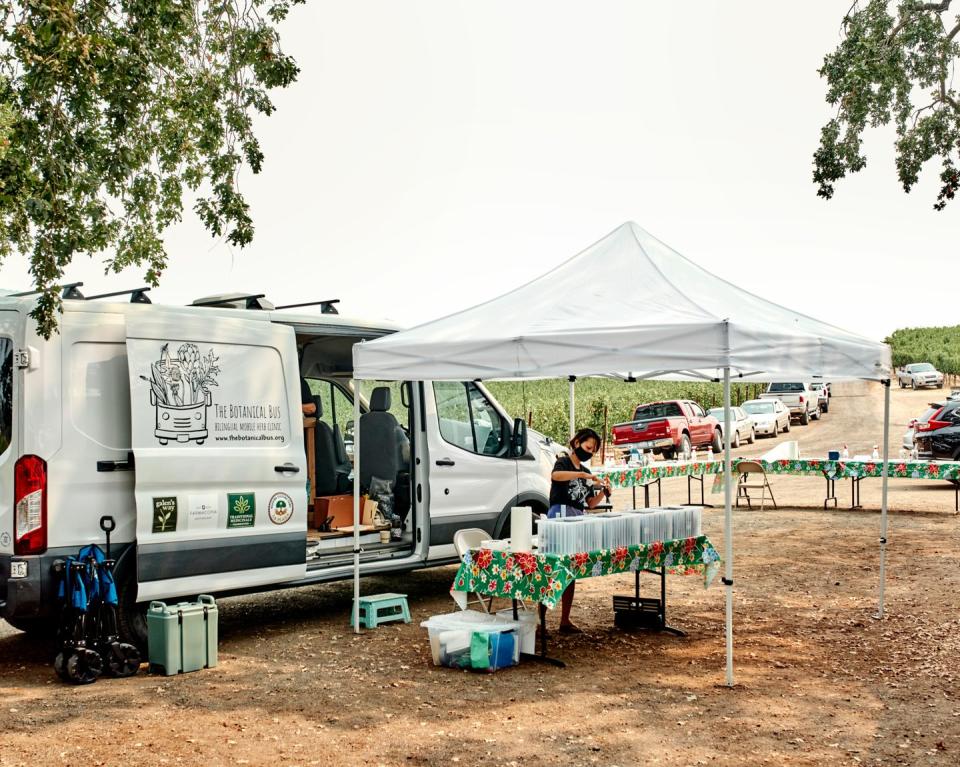
How Healthcare Failed Latinx Farmworkers
It probably shouldn’t come as a surprise that fifty-nine percent of all farmworkers in California reported having no health insurance or cited costs as a deterrent, according to the 2020 COVID-19 Farmworker Study. The report also found distrust in the authorities, government, and the medical system.
Of course, the COVID-19 pandemic has only exacerbated and further exposed the gaps in our public health infrastructure, with Latinx populations being among the hardest hit.
The COVID-related death rate for Latinx people in California is 20% higher than the statewide rate, according to a new report by ChangeLab Solutions, the California Pan-Ethnic Health Network, and Prevention Institute.
“Even before the pandemic, we had a really broken healthcare system,” explains report contributor Sarait Martinez, executive director at Centro Binacional para el Desarrollo Indígena Oaxaqueño, a social services organization in Fresno, California. “We know many farmworkers are undocumented and another layer is that many struggle to get access to healthcare in their language.”
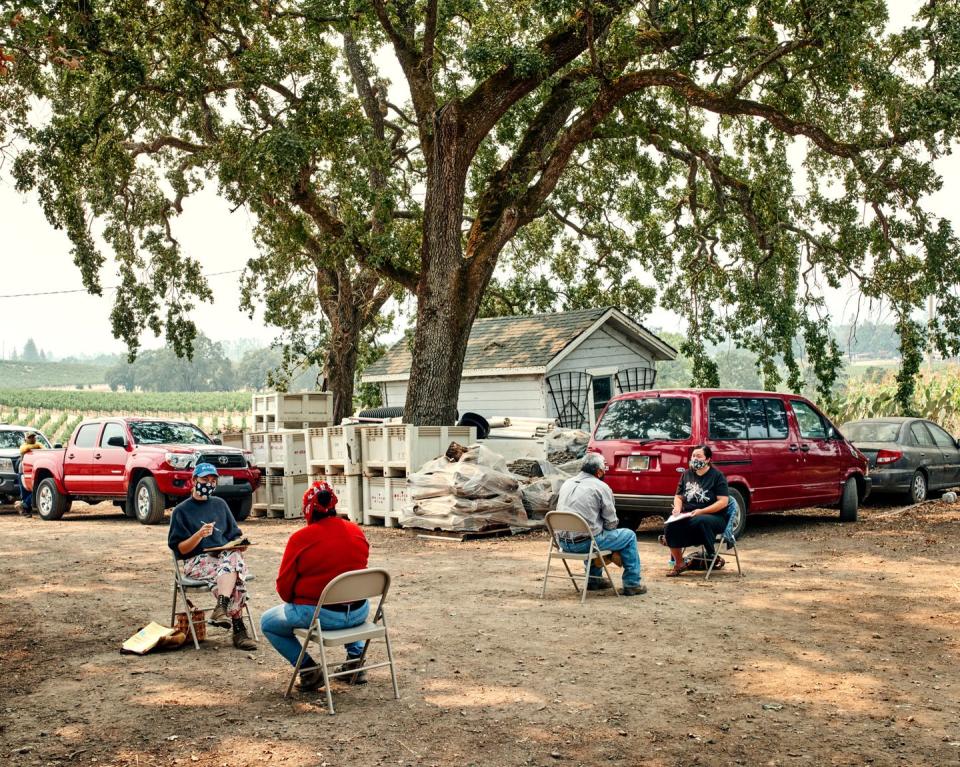
A cultural gap also exists: Martinez, whose parents are farmworkers still working in the fields today, says that even back in Mexico, most people don’t have access to preventative healthcare. “People aren’t used to using it,” she says. “It’s just not in our culture.”
Instead of taking medication, most people turn to natural and indigenous remedies first, she says.
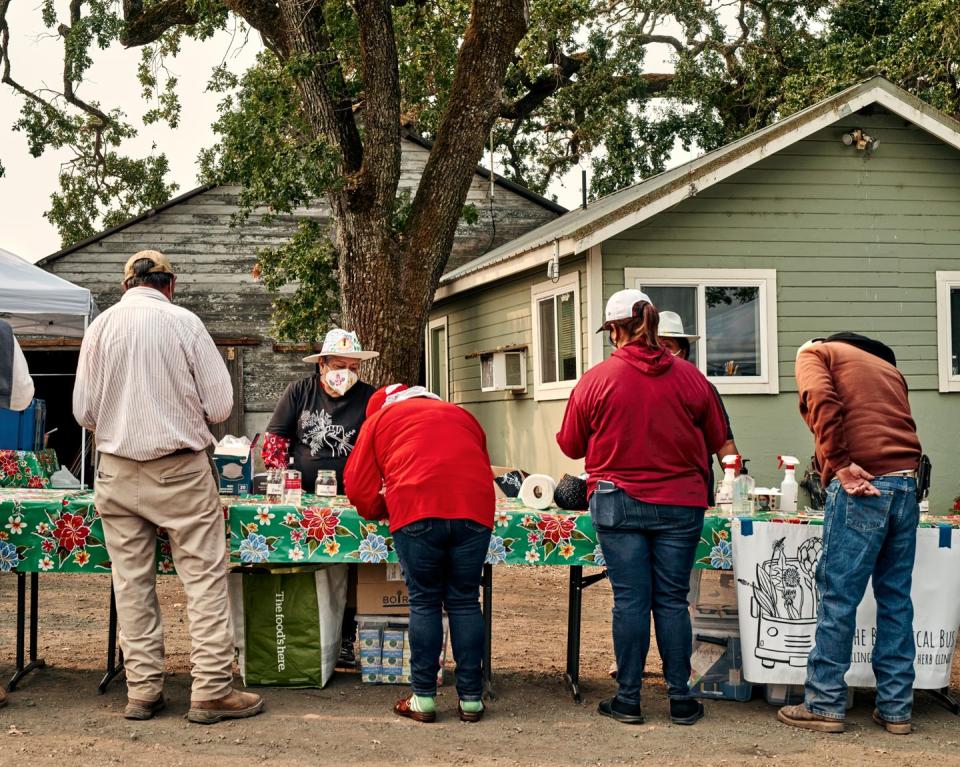
Herbal Remedies As a Gateway To Conventional Medicine
Herbalism, the ancient practice of using plants for healing, “is a powerful and culturally relevant form of healthcare that has proven to encourage the Latinx and indigenous populations to seek out conventional and complementary care,” says Boreta. Most of The Botanical Bus’ clients ask for teas for stress relief and to help them sleep.
Last year, Boreta posted a recipe on Instagram for Passionflower Rose Agua de Jamaica, “for stress relief in the face of systemic racism.”
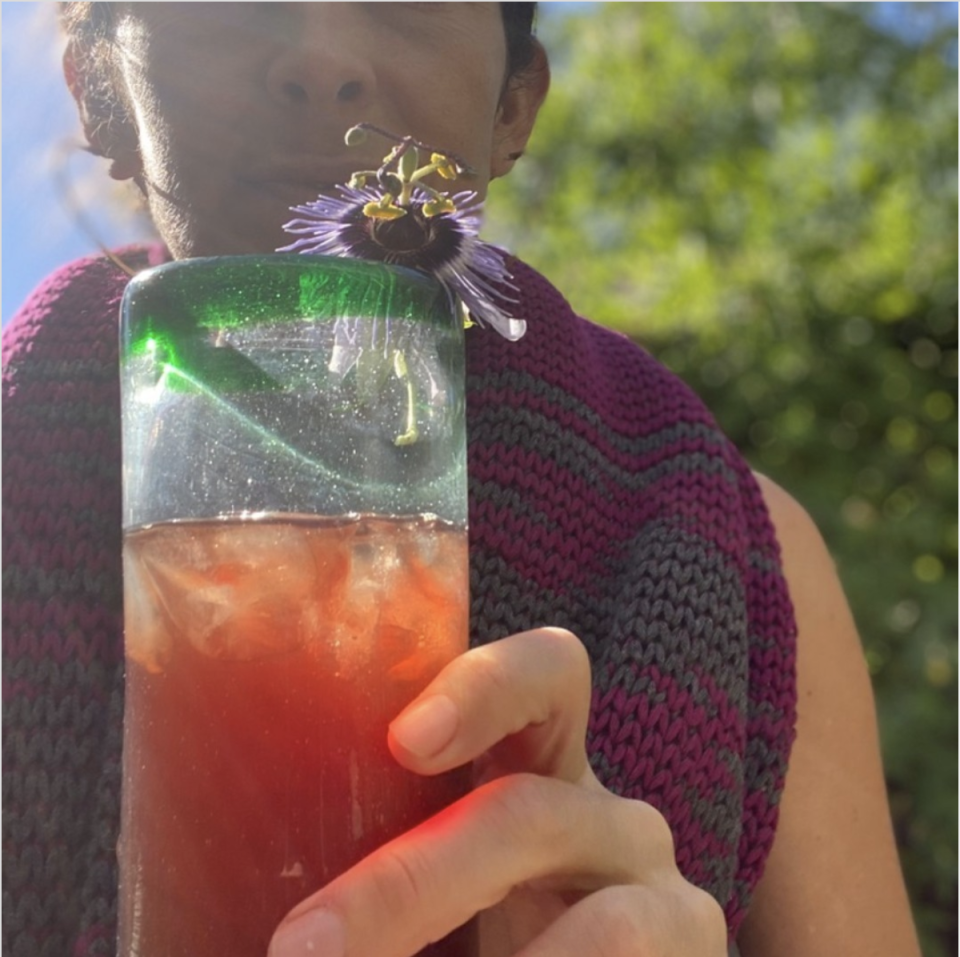
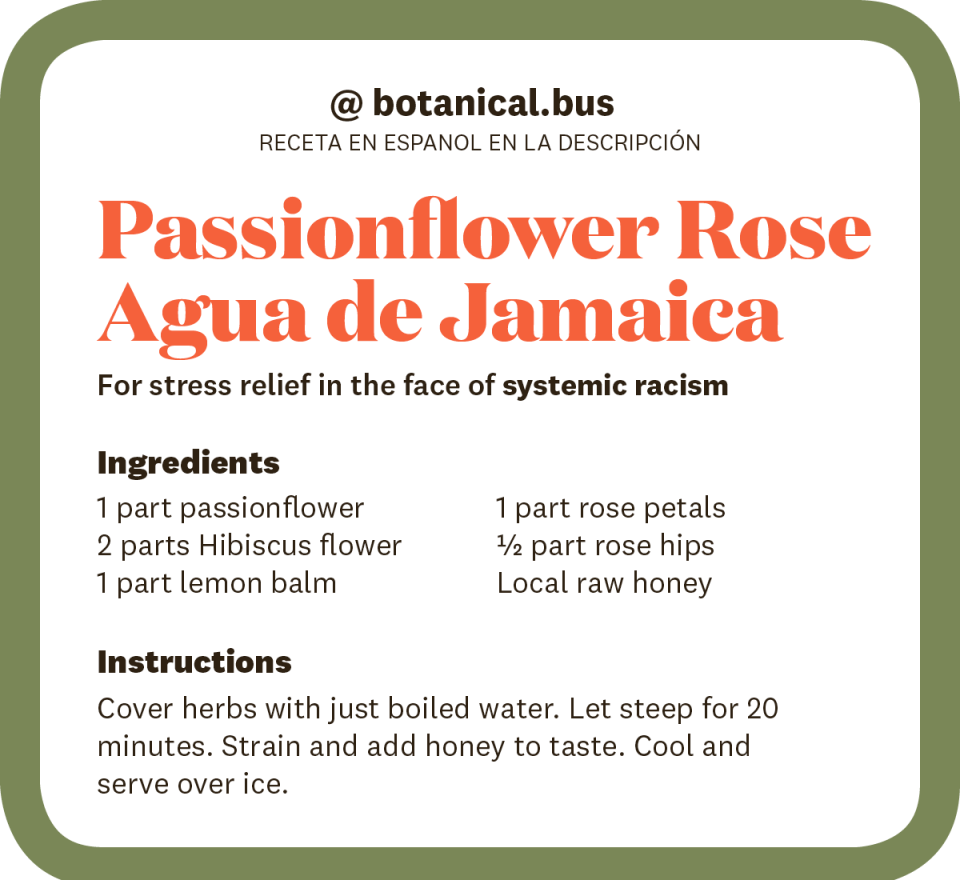
Boreta also shares recipes for teas for fever and herbal cough syrup on The Botanical Bus blog. She theorizes that “someone who is learning about what herbs they can put in their chicken soup to nourish their family is much more likely to access emergency or conventional care when needed.”
And research backs that up. A 2019 study published in the Journal of Agromedicine found that Mexican farmworkers treated by a conventional healthcare provider in the past year were twice as likely to also be treated by a traditional healer (e.g., sobador, curandero) during this same period.
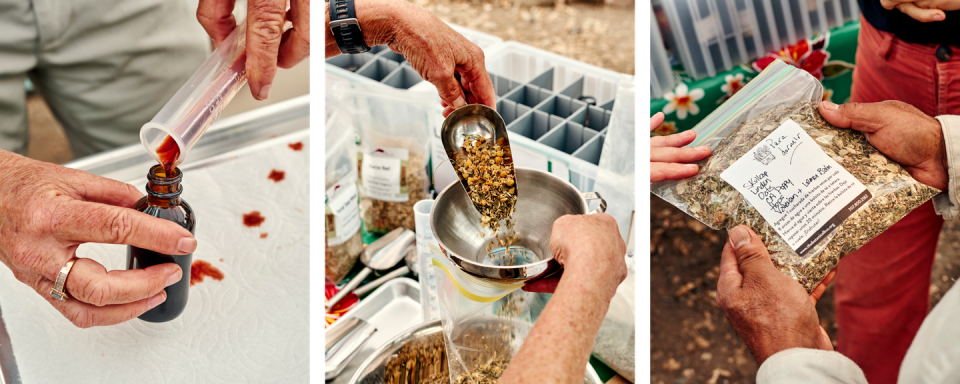
While The Botanical Bus does not currently offer medical services or COVID-19 vaccines, Boreta is working with West County Health Centers, a nonprofit Federally Qualified Health Center (FQHC) dedicated to integrative medicine and group visits across Sonoma County, to combine forces at rural elementary schools in Northern California starting this fall.
“This work is truly where healthcare needs to go—out into the community, meeting people where they are, and learning about the needs of the community before deciding how to serve them,” says Connie Earl, DO, a family physician, chief medical officer of Innovation and medical director of Wellness Services at West County Health Centers.
And herbal medicine can move the needle. When Earl observed sessions with practitioners and clients, she noticed that patients frequently talked about other medications and their diagnoses. Practitioners recommended a visit to their primary care provider to make sure nothing was being missed. “The methodology is truly integrative and collaborative with Western medicine,” she adds.
Rooted In Tradition
After working for more than a decade leading community initiatives at the Global Exchange, an international human rights organization, Boreta went back to school to study herbal medicine in 2015 after the birth of her first child.
Boreta began volunteering at Bayer Farm, a two-acre urban community garden in Santa Rosa, with a baby strapped to her breast, every Friday. She started studying recipes and herbal remedies there. “I felt so lucky to be learning from some older immigrant women. I felt like I was connecting with my grandmothers who had passed,” Boreta says.
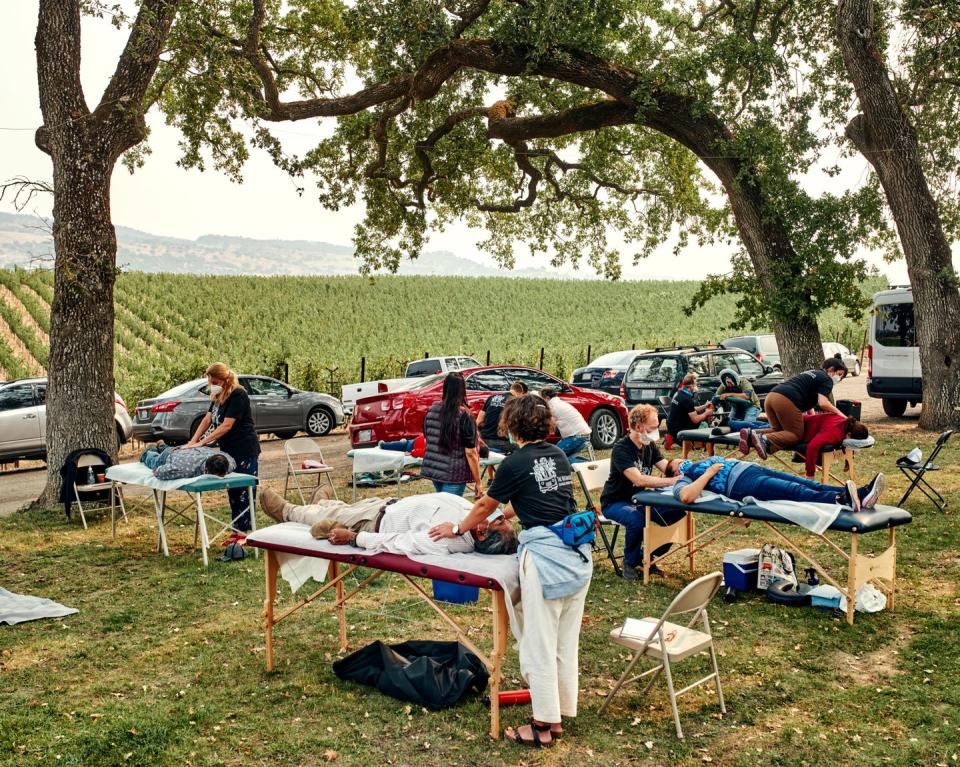
After she received her herbalism certification from the California School of Herbal Studies, Boreta co-founded The Botanical Bus bilingual clinic with Angeles Quiñones, a Mexican immigrant who runs Farming for Health, and Lily Mazzarella, owner of Farmacopia apothecary, in 2017. It began as a response to the Northern California Wildfires, which, at the time, were considered California’s worst. “We filled up one of those fold-out canvas wagons with resources and arrived at the evacuation centers with teas to help people sleep,” Boreta says. “It quickly became evident that the people we were serving the most were Spanish-speaking people who were working in the vineyards.”
The fires eventually subsided, but the donations kept flooding in. So Boreta and Quiñones kept showing up at Latinx health centers and community gardens on Saturdays. They started offering free weekly bilingual wellness workshops (covering stress, sleep, immunity, women’s health) to everyone.
By late 2019, Boreta, Quiñones, and Mazzarella had fundraised $40,000 in 30 days to make The Botanical Bus an official nonprofit. A year later, in 2020, The Botanical Bus expanded its reach to include vineyards, launching on-site farmworkers clinics.
“I Am From The Countryside, Like You.”
Boreta isn’t the only one on her team of practitioners who has deep ties to the migrant farmworker community. All 10 promotoras de salud—health advocates who lead workshops and clinical services for The Botanical Bus—are Latinx immigrants or daughters of immigrants. And, in some cases, they’ve also been farmworkers themselves.
“Soy campesina como ustedes,” promotora Juliana Jimenez, 40, a Mexican immigrant and mother of four told a group of 22 male and three female farmworkers at Silver Oak at the start of the diabetes workshop. “I am from the countryside, like you.”
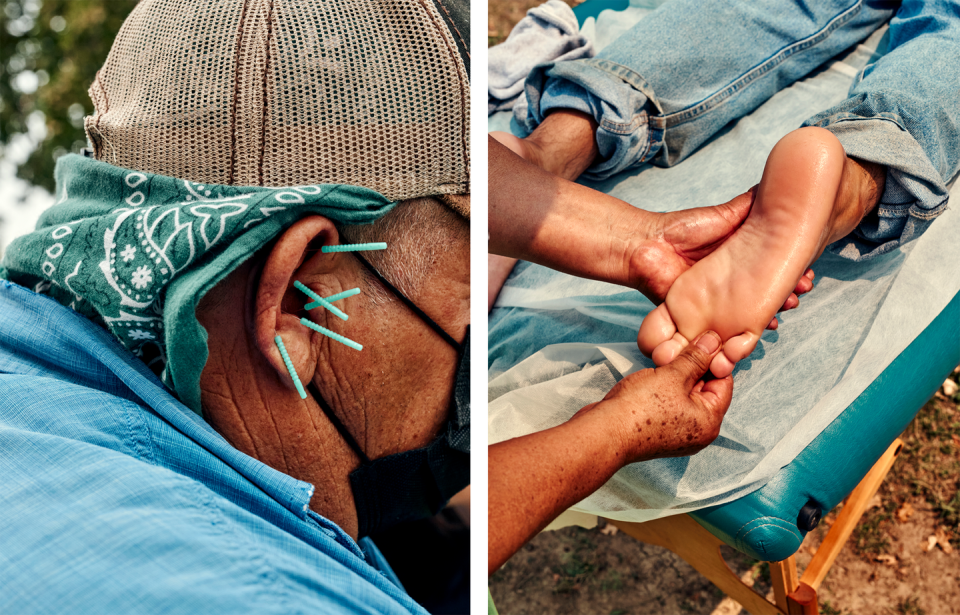
Looking for a way to cope with the loss of her father to diabetes at age 58, Jimenez sought support from Boreta at Bayer Farm in 2019. Upon hearing Jimenez’s powerful story, Boreta invited her to educate the community about the disproportionate impact type II diabetes has on Hispanics. Research shows Latinx people are twice as likely to get this chronic disease and are 1.3 times more likely to die from it compared to non-Hispanic whites.
Jimenez recalled being scared to do the talks at first. “But I know this is a huge problem,” she says. “I have cousins in their twenties losing their eyesight to diabetes.”
Boreta reassured her, and soon Jimenez began leading sessions via Zoom on how to read nutrition labels and understand portion sizes. “She lifted me up and encouraged me to help educate my people,” says Jimenez.
Another Mexican-born promotora, Maria Rivera, 49, felt a calling to help this community. She offers somatic therapy sessions that incorporate breath work, visualization, and movement at The Botanical Bus' clinics. “I hadn’t connected just how close this was to my heart until being here,” Rivera says of the Silver Oak event. “I had forgotten that I had worked in the fields.”

When she was 13 and newly arrived in America, Rivera’s father took the family to harvest plums. “It was really hard,” she recalls. “We were on our knees with a bucket, collecting [fruit] off the ground.” Her dad explained that he wanted them to get a sense of the work—and told them he never wanted them to do it, Rivera says, tears wetting her cheeks.
“I thought of my dad as I arrived here today,” Rivera says of her deceased father, who worked in the fields for years. “The ways that I’m able to connect with people through this practice, meditation, and breathwork is undoubtedly my dad’s legacy.”
At the end of every clinic, clients fill out a survey about their experience and how The Botanical Bus can improve. What keeps Boreta going is the responses. Often, farmworkers say that they arrived feeling stressed, anxious, or in acute pain, and they left feeling much lighter—emotionally and physically. “They say it in a million different ways,” she says.
Boreta sees the same faces coming back to receive care. And through fires, pandemics, and storms, her team and their mobile clinic will be there. “Herbalism is activism,” she says. “It shows us that we are connected to the earth, that we know how to heal ourselves, our families, and our communities.”
You Might Also Like

